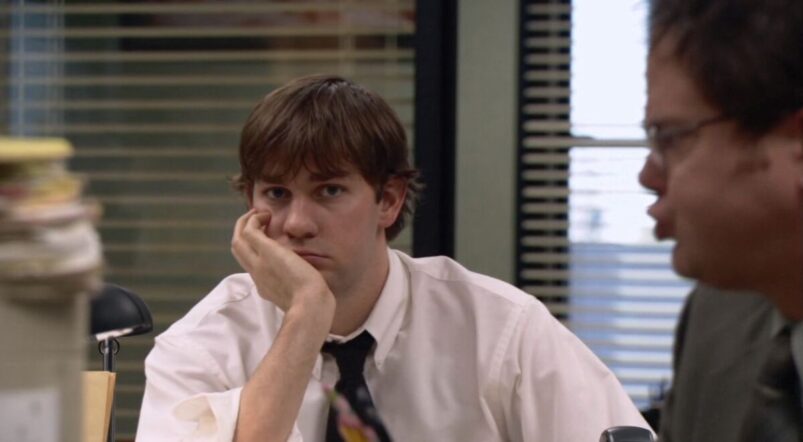TV is built on convention. Whether its rehashed storylines, familiar plot developments or well-worn character dynamics, the so-called tropes of the format are practically inescapable. There are some things that just work, and there’s no getting away from it, no matter how hard you try. Yet there are other tropes and tricks which are now beyond the point of excuse. We all accept that narratives usually have to exist within a tried and tested framework, but there are certainly some hackneyed old clichés which no longer have their place on the box. Dreadful, copy-paste dialogue, tired gags and predictable characters are all wearing thin on an increasingly discerning audience.
It’s impossible to cover every trope ever pumped out by the studios over the years (although some have tried), but here are 10 clichés that we’ve seen time and again that might need to be sent out to pasture.
1. Bad Subtitles And Translations
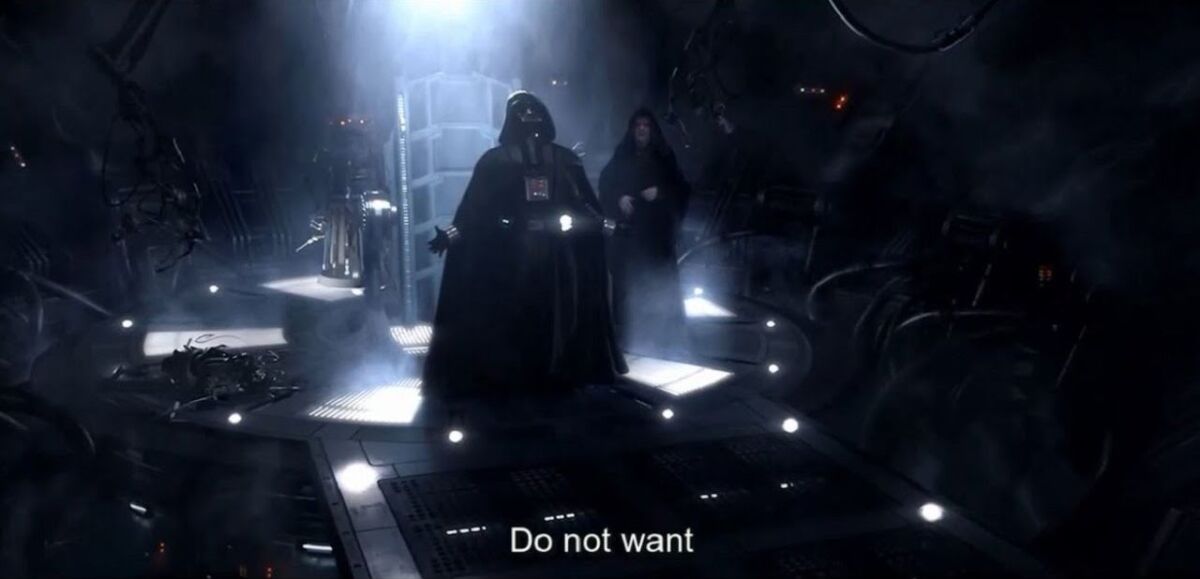
A charming misunderstanding or use of dramatic irony are often welcome comic asides for an audience, but I’m at my limit with the use of this particular trope. A character who doesn’t speak another language particularly well stumbles and bumbles his way through some broken French or Spanish (often Spanish in American shows), thinking he’s saying one thing while the subtitles below tell a different story. ‘Tu madre tiene una…boca…sucia…’: your mother has a dirty mouth. How we laughed the first time we saw it used – and quite rightly, it’s a good gag. No-one’s disputing that. Sadly, it’s been trotted out so frequently, in shows ranging from Top Gear to Gravity Falls, that it’s just starting to lose its sting.
Another spin on the gag is to have the dialogue obscured by some intrusive noise and simply have the subtitles put humorous words in their mouths, but again, that’s not enough of an interesting spin to warrant its persistent use.
The joke is likely used most often in British and American shows, considering that the majority of the world can speak at least one other language while most Brits and Americans think that knowing the word ‘fromage’ constitutes fluent bilingualism, but whatever the series and whatever the reason, this cliché needs to get lost.
2. Clichéd Dialogue
‘We’re not so different, you and I’ is the perennial offender, used across movies, TV dramas and everything in between, often in the most maddeningly arbitrary fashion. We’re not so different? You’re a psychopathic mass murderer who just killed 14 people, I’m a pacifist detective who likes yoga and Bruce Springsteen records. How are we similar?
Sitcoms have become far more self-aware in the last 10 or 15 years, but they still drop the occasional clanger like ‘note to self’ and ‘did I say that out loud?’, both of which seem to be a particular stain on American shows. Other favourites include ‘I was born ready’, ‘I didn’t come here to make friends’ (popular on reality TV contests) and ‘In English, please’, the latter a particular bugbear of the online community, in which the convoluted jargonistic babble of the show’s designated nerd draws the ire of the wisecracking, no-nonsense (male) protagonist. Always annoying, this cliché is beautifully pastiched in The Simpsons episode ‘Homer’s Triple Bypass’ when Dr. Hibbert explains that Homer will need to have heart surgery.
3. Clunky Narrative Signposts
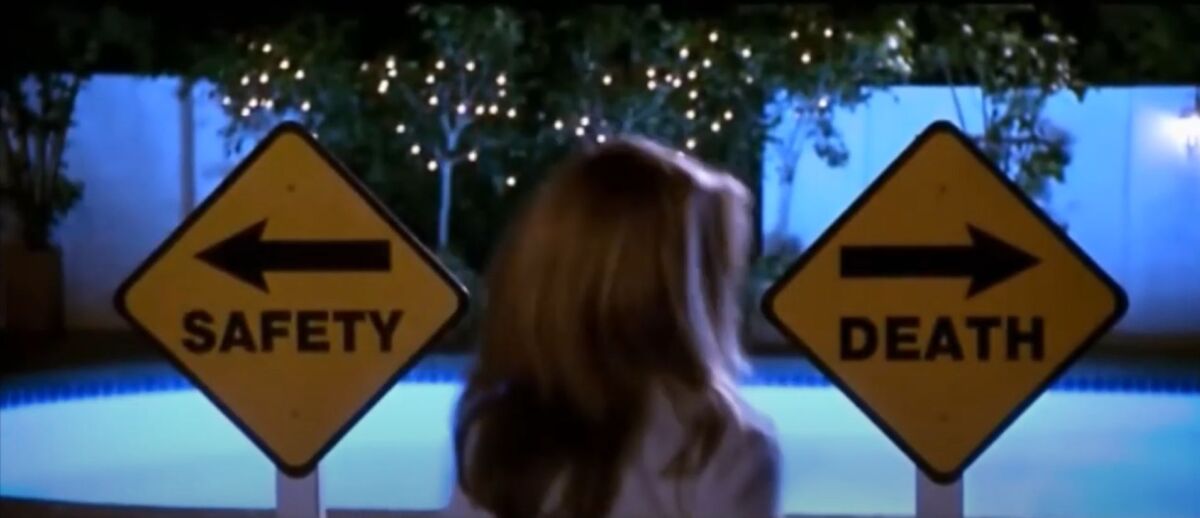
Chief Wiggum: “You know how it is with cops. I’ll get shot three days before retirement. In the business we call it ‘retirony’.”
Financial Advisor: “What if you don’t get shot?”
Chief Wiggum: “What a terrible thing to say. Now, look. You made my wife cry.”
The Simpsons’ affection for cop dramas and their love of playing with clichés was one of the show’s subtler running gags, evidenced not only in the great exchange above between Chief Wiggum and his financial advisor, but also in the McBain ‘show-within-a-show’, particularly in the ‘Get Mendoza’ sequence wherein McBain’s partner is just ‘two days from retirement’ and planning to sail around the world in a boat aptly named the ‘Live-4-Eva’. It’s been roundly parodied ever since, and appears in everything from bog-standard police procedural NCIS to the quietly excellent Psych.
There are so many other conventions and crutches used to signpost to audiences a narrative development down the line. Two of my favourites are characters suffering from a mild cough ending up as cadavers within the week, and nausea only ever meaning one of two things: emotional trauma, or more likely pregnancy. Maybe TV producers are squeamish about talking about missed periods on telly, so instead they opt for the subtler, more palatable approach of having their female protagonists puke their guts up over a toilet bowl, thus avoiding all embarrassment. See CSI, Friends, How I Met Your Mother, The Office etc.
4. Cousin Oliver Syndrome
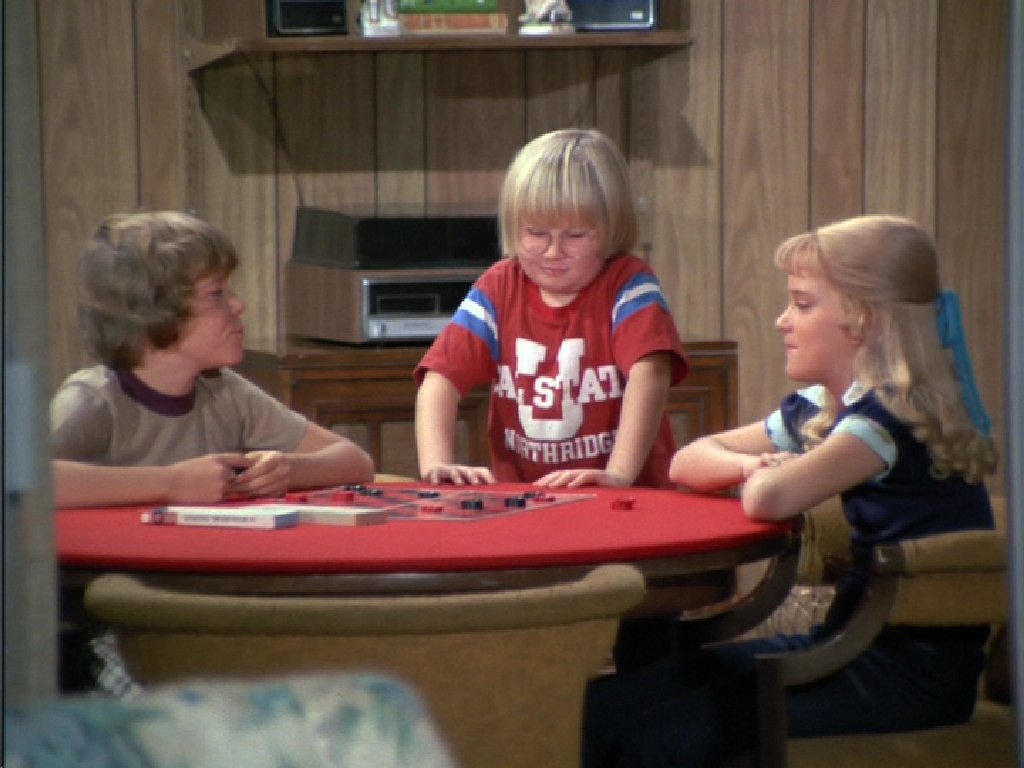
You might not necessarily be aware of the term ‘Cousin Oliver Syndrome’, but you’ll certainly have seen it used in your favourite shows, and what’s more, you likely hate this cliché as much as any other on this list.
‘Cousin Oliver Syndrome’ takes its name from an episode of cosy all-American schmaltz-fest The Brady Bunch in which the producers added the aforementioned Cousin Oliver to the cast of later episodes in a bid to boost flagging rating and inject a bit of comedic zip. Unsurprisingly, it failed and the show never really recovered as a result, partially because it was an arbitrary shake-up which didn’t get to the heart of the show’s problems, and partially because Cousin Oliver slotted into the show about as effectively as Gandhi suddenly showing up in the WWE.
What is it about studio execs and producers to make them think that the way to attract viewers is to add small children? The logic is presumably that if the original dynamic, often of a happy couple or a settled family, has gone stale, then the best way to remedy this cheaply and effectively is to add a disruptive figure – and what could be more disruptive than a small child?
For more examples, see cosy superhero-based Britcom My Hero (talking babies are anathema to humour at the best of times), Poof from the formerly exceptional Fairly Odd Parents, Scrappy Doo from adolescent mystery solve-athon Scooby-Doo, and Roy, once again the ever-dependable Simpsons’ meta-commentary on the whole sorry trend of arbitrary character introductions from the episode The Itchy & Scratchy & Poochie Show. The most striking example of the trend, however, is probably Lee Mack’s London-based sitcom Not Going Out, which transformed halfway through its run from an enjoyable ‘will they, won’t they’ set-up into an unabashed domestic suburban sitcom, complete with kids, neighbours, and clichéd mid-life marital antics. It’s just not the same.
5. Fights That Quickly Stop Being Fights
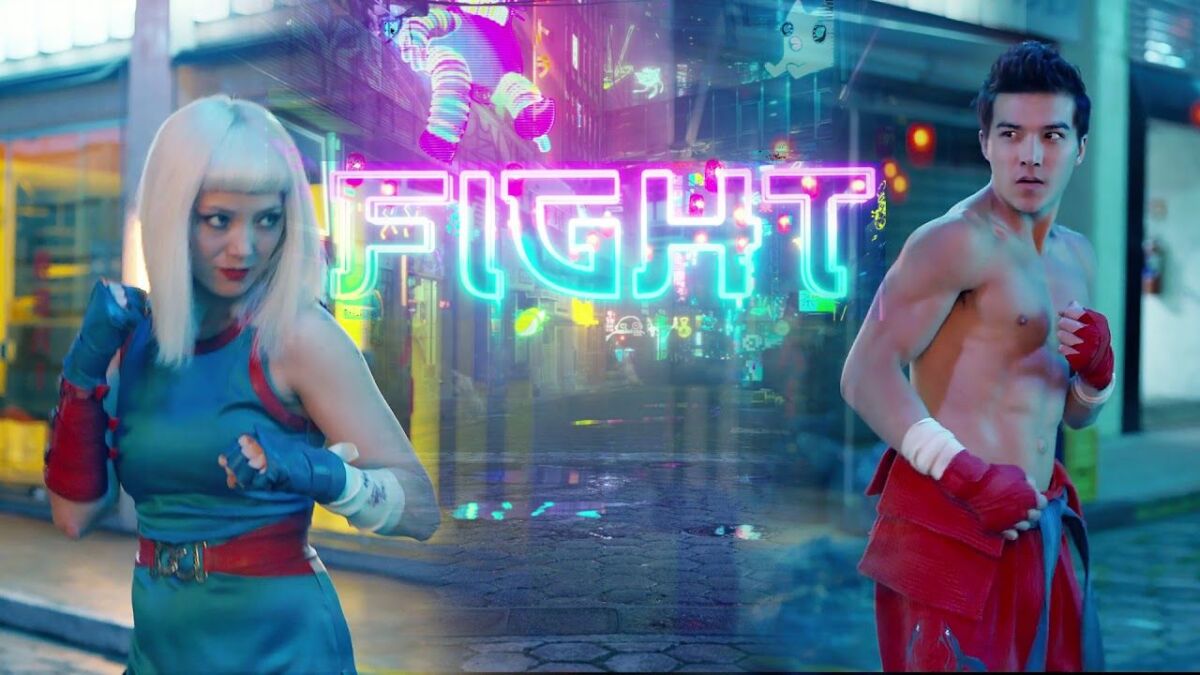
You know how it is. You invite your sexy sparring partner round to your private dojo for an intense head-kicking session and before you know it, you’re out of your karategi and performing some altogether different locks and holds on your opponent.
This is a weird one, really, when you consider how prevalent its use is and how disturbingly easily combative violence and sex seem to coexist on screen, but when you consider the massive number of shows and movies devoted to some form of violence practiced on both sides of the gender divide coupled with the frequent need for almost every dependable series to have a strong narrative love interest or two, it becomes almost inescapable.
Written down, it certainly feels very taboo to say that sex and fighting are in any way similar, and let me put on the record now that if you equate sex with non-consensual violence you need to have a long hard look at yourself, but TV shows do show pretty incontrovertible proof that with the right framing, all the sweaty, intimate grit of an intense grappling session can quickly degenerate into, well, a different sort of sweaty, intimate grappling session. Just please don’t try it down at your local dojo with Sensei Steve.
The trope is probably most evident in superhero and action-based series which involve the male protagonist sparring with their equally competent female counterpart. It happens in Daredevil and I’m pretty sure it pops up, so to speak, in the rather disappointing Iron Fist, whose name suddenly has very different connotations when inserted into this discussion.
Once again, there’s an example in a Simpsons Treehouse of Horror episode where a leprechaun employed to defeat an evil witch very soon ends up getting his priorities mixed up, and it also appears in Buffy the Vampire slayer, an episode of Chuck, and a hell of a lot in Cobra Kai, apparently.
6. ‘I’m OK’. (‘I’m Still OK’).
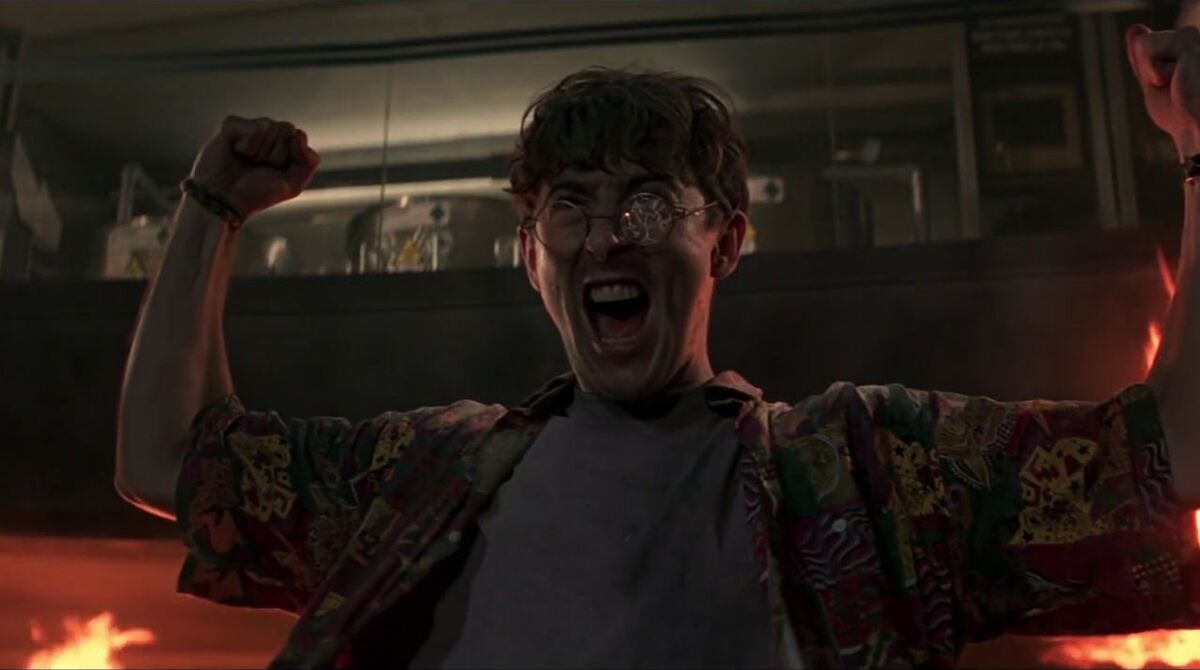
This may be the perennial sin of American TV and movie comedies, and it simply won’t die. Something bad happens to a character, often a cartoon (a safe drops on them, they fall from a great height, get hit by a car, crash a vehicle etc.) and they proclaim earnestly that they’re ‘ok’ despite the apparent severity of the incident. That’s the basic premise.
For more advanced connoisseurs, there is the ‘I’m still ok’ follow-up, usually involving a character being comedically hit by a car, rising to their feet, proclaiming their state of ok-ness before being side-swiped by another vehicle coming from out of shot. We never see it coming.
This gag needs to die, and it needs to die now. There is no use for it, no new form of ‘I’m ok’, no exciting twist or ironic spin you could put on this cliché to make it in any way acceptable. It’s a bad joke, it’s lazy, we’ve seen it hundreds of times before and what’s more, the circumstances which lead to its arrival are always so heavily signposted it never comes as a surprise when it lands. Small children watching their first movies or seeing their first TV show yawn derisively when they see it. Kill it. Kill it now.
There are thousands of examples to cite, so many that you wouldn’t believe, but TV offenders include Modern Family, Friends, Bob’s Burgers, The Big Bang Theory, DuckTales, American Dad, Billy and Mandy, and even Archer. If you want the archetypal movie example, search for classic noughties ball-based comedy Dodgeball’s ‘dodging traffic’ scene for the definitive ‘I’m Ok’. Even great art has its flaws.
If you’re short on time, there’s a supercut for this sort of thing on YouTube. I pity the poor soul who had to put that together.
7. Overly Revealing Camera Work

I do concede that explaining inherently visual concepts through the written word might not always be the most effective, but I’ll do my best to explain this.
A character walks into a room. The camera comes right in to focus on our lead’s face, blocking out the rest of the world, and then bang! It pulls back to reveal something funny, startling or supposedly unforeseeable inside the room: an unexpected guest, a surprise renovation, a crime scene, whichever.
I’m not saying it’s not necessary to obscure certain things in drama to preserve the drama, but you see this done so incredibly often it just acts as a visual giveaway to what comes next, ripping a hole in any built-up tension and signposting to the audience that something lies in waiting that we’re not supposed to see yet. Better yet, find a narrative device that doesn’t just involve people walking into rooms!
This sort of thing manifests in a host of other ways; cameras zooming in clumsily on text, focusing on characters’ heads to then later reveal their unusual location / situation, lingering on certain objects for a little too long as a blatant signal to the audience, but it’s become so recognisably obvious that the viewer is now not being required to do any of the work. A little more respect for the viewer can go a long way.
8. Ugly Guys With Hot Wives

As a sub-optimally attractive man, I’m not sure whether I find this trope offensive, inspiring, or a little bit of both. However you see it, there’s no doubt that it’s hugely prevalent particularly in American TV, namely sitcoms (Modern Family) and animated cartoons (The Simpsons, Family Guy, The Cleveland Show, even The Flintstones) as a way of generating a cheap laugh.
The real issue I’ve always had with the ‘gag’ is that it wasn’t ever particularly funny in the first place, but I think there’s slightly more to it than that. Women in the media have often sadly been chosen by virtue of their looks rather than their perceived talent, acting as secondary performers to the male stars who were free to be funny even if they weren’t particularly easy on the eye, i.e. Jackie Gleeson in The Honeymooners (‘one of these days, Alice!’). The ladies, meanwhile, weren’t expected to be funny and were therefore used as eye-candy, as something nice to look at whilst Gleeson et. al. were given free reign to goof about. It’s not a hard and fast rule, but it’s certainly a noticeable trend.
What’s strange is how long the joke has seemingly survived, and how it only manifests itself in one direction. Seth MacFarlane famously exploits it without fail, but it’s even seeped its way into movies, and good movies at that. Remember the whole running gag about how it was inconceivable that Eva Mendes’ character would be married to Will Ferrell in The Other Guys? As an ugly man, I say, enough.
9. Sexy TV ‘Nerds’
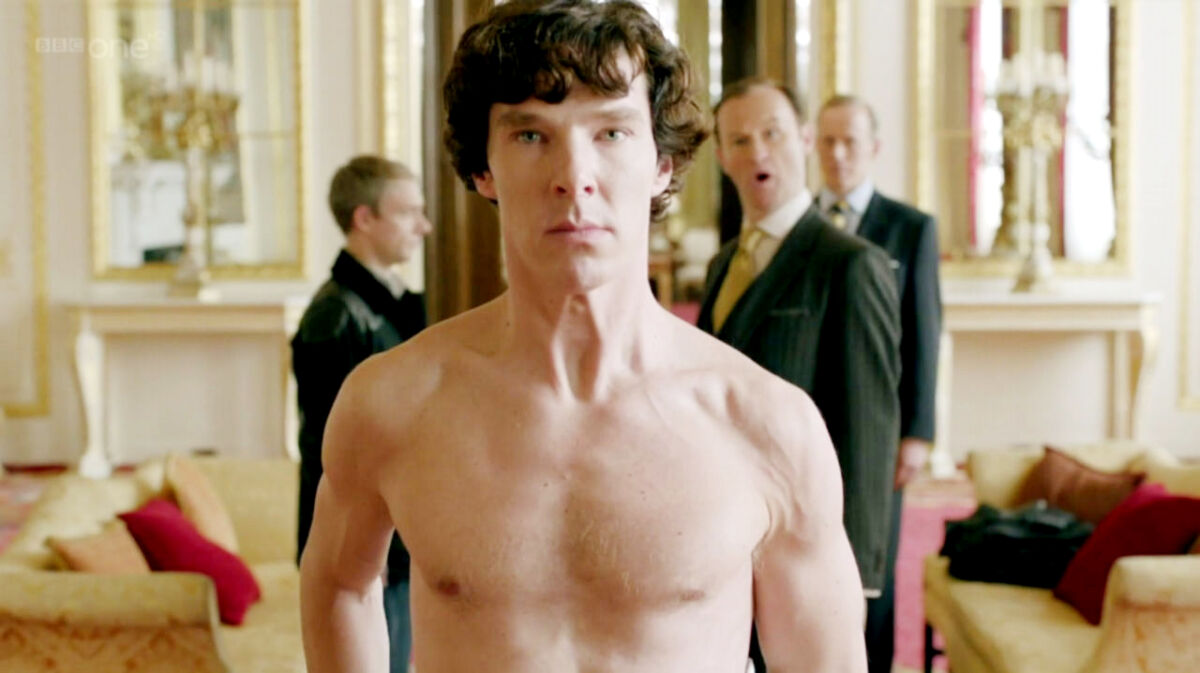
Have you seen the average nerd? I’m not bashing what may be a large swathe of the readership here, putting myself as I do firmly in said category, but the bookish members of society, valuable and unique as they all are, are not renowned for the chiselled-ness of their jaws or lusciousness of their flowing locks, just as most runway models don’t often take a break from a long day on the catwalk by watching Jean-Luc Goddard films and reading a little Brecht. I know this is all coming across as a little bit ‘Neanderthal man’, here, but look at the world and try to tell me that I’m wrong. For as long as there has been a hierarchy based on attractiveness, sexy jocks have been at the top and nerds have been at the bottom. So it will always be.
So why do Hollywood and TV keep peddling this pathetic sexy nerd mythology? Is it to appease their fanbases, or can they really not stomach having anyone below a solid 7.5 gracing the airwaves? The true reason is probably deeply depressing: ‘ugly’ people simply don’t get the acting work that the ‘attractive’ ones do, and so the simplest thing to do is to pop a lithe young actor/model in glasses, give him a beanie hat and fingerless gloves and plonk him in front of a computer in the hope that no-one notices that beneath his Star Trek t-shirt he’s built like Brad Pitt carved from marble.
If you need examples, see The Flash, Dr. Who, Supergirl, Ugly Betty, Parks And Rec, Chuck, Friends, NCIS, Big Bang Theory, Sherlock – I could go on, and on, and on. The main problem I have is that this is simply the programme’s writers insisting that a character is ugly when we can see for ourselves that they’re clearly not, an informed attribute where we are told one thing but patently shown another.
I’m convinced these representations have penetrated the social psyche, and that most people in this world who tell you that they find ‘nerds’ attractive actually mean that they find this rather insidious brand of TV Poindexter to be the object of their adolescent fantasising. I’m sure most of my off-piste female contemporaries when I was a schoolboy adolescent were thinking about the likes of Benedict Cumberbatch, Ben Wishaw, or even Tom Holland when they heard the words ‘nerd’ or ‘geek’. They weren’t talking about the latest spotty recipient of West Tilbury College’s A-level prizes in further maths.
10. Time Travel Episodes

Let me make this clear: I love a good time travel episode. In the right hands, they’re a chance not only to bend the minds of the audience and stretch the parameters of the narrative in all sorts of exciting new ways, they can create some of the most exciting and emotionally resonant moments on the small screen. The Late Philip J. Fry from Futurama, Monday from The X Files, and Family Guy’s Road to the Multiverse have all experimented with the laws of time and space to great success and acclaim. I am not advocating we get rid of time travel on TV. What I am saying is that, like it or not, it’s become a go-to trope, and we need to handle it with care.
What I also feel is that such episodes can represent a last resort when things are going stale. Often a time travel episode or indeed a time traveling movie sequel is a sign that ideas are running thin, a card to be pulled when all other narrative pathways and character developments have hit dead-ends. Family Guy have leaned a little too heavily on them as their run has stretched across decades, as, unsurprisingly, did The Twilight Zone, while The Simpsons seem constantly to opt for outings set in the past and/or future to expand their narrative oeuvre.
Ok, it’s not pure ‘time travel’, but I’m starting to grow weary of endless rehashes of Marge and Homer at various stages of their dysfunctional relationship. Likewise, as the jumbled, wacky narrative of Lost wore on, some viewers found their patience wearing thin by what they saw was becoming dangerously close to a show jumping the fourth-dimensional shark as time travel became an increasingly prominent feature. On the big screen, when Men In Black 3 came out a few years back, you always had the feeling the producers had completed the holy trinity of movie threequel sins; good original, amnesia-based follow-up, time traveling third outing.
Most time travel episodes are super, though, and often end up being a season highlight, even a show’s overall peak. Rick And Morty, South Park, Red Dwarf, all have struck gold by exploring the fourth dimension. I suppose what I’m saying is, there have been a lot of such episodes and if you’re going to do one these days, you’d better have a bloody good reason and it had better have bloody good results. The bar has been set pretty high, and if a high-concept outing falls flat, it falls extremely hard.
READ MORE: 10 Most Ridiculously Arbitrary Elimination Shows
Some of the coverage you find on Cultured Vultures contains affiliate links, which provide us with small commissions based on purchases made from visiting our site.
